Research Article
Issue Reviewers
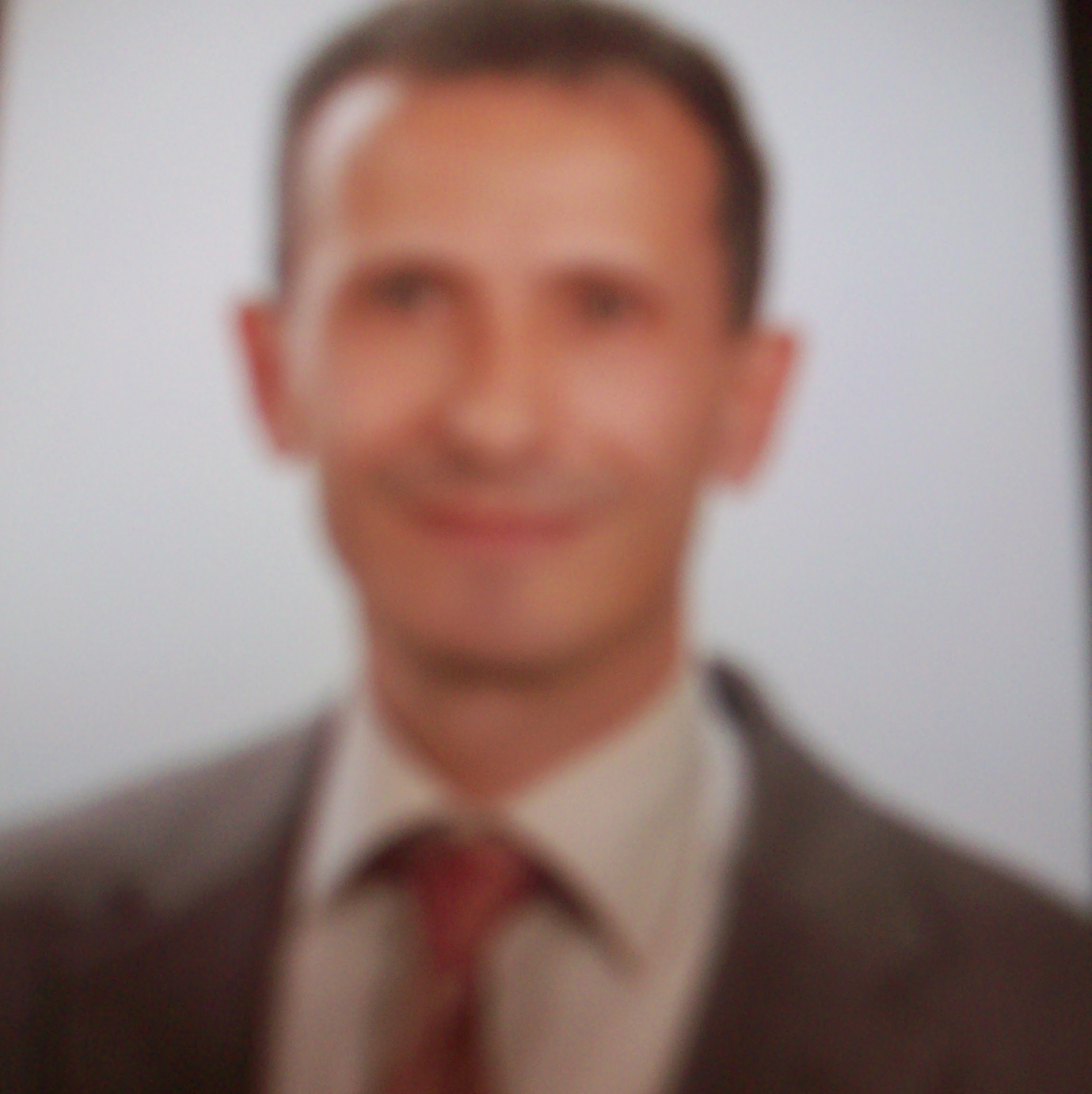
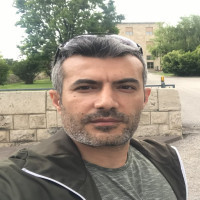



 Web
Web

Contemporary French Literature, Visual Culture and Cultural Studies, Representations of War, Identity, Travel Literature, Francophone Literature, and Migration.

Alev SINAR UĞURLU 1967 tarihinde İstanbul’da doğdu. Beşiktaş Atatürk Lisesi'ni bitirdikten sonra 1988 yılında Marmara Üniversitesi Fen Edebiyat Fakültesi Türk Dili ve Edebiyatı Bölümünden mezun oldu. 1990 yılında Marmara Üniversitesi Sosyal Bilimler Enstitüsü Yeni Türk Edebiyatı Ana Bilim Dalında "İlkokul Okuma Kitapları (1921-1933)" adlı teziyle yüksek lisansını, 1995 yılında Marmara Üniversitesi Türkiyat Araştırmaları Enstitüsü Yeni Türk Edebiyatı Ana Bilim Dalında "Türk Hikâye ve Romanında Çocuk (1872-1950)" adlı teziyle doktorasını tamamladı.
1989-1996 tarihleri arasında Marmara Üniversitesi Atatürk Eğitim Fakültesi Sınıf Öğretmenliği ve Okul Öncesi Eğitimi Öğretmenliği Bölümleri'nde öğretim görevlisi olarak çalıştı. Eylül 1996’da Uludağ Üniversitesi Fen Edebiyat Fakültesi Türk Dili ve Edebiyatı Bölümüne yardımcı doçent olarak atandı. 17 Haziran 2002 tarihinde Türk Edebiyatı Bilim Dalında doçent, 29 Ocak 2009 tarihinde de Yeni Türk Edebiyatı Anabilim Dalında profesör unvanını kazandı.
Hikâye ve Romanımızda Çocuk, Türk Roman ve Hikâyesinde II. Dünya Savaşı, Aka Gündüz’ün Romanlarında Kadın, Çocuk Edebiyatı, Fevzi Lütfi Karaosmanoğlu Bir Muallifin Edebi ve Sosyal Yazıları, adlı kitapları başta olmak üzere çok sayıda makaleleri, bildirileri ve kitap içinde bölüm yazarlığı vardır.
Türk Ocakları Derneği Bursa Şubesi yönetim kurulu üyesi de olan Alev SINAR UĞURLU halen Bursa Uludağ Üniversitesi Fen Edebiyat Fakültesi Türk Dili ve Edebiyatı Bölümü öğretim üyesi ve Yeni Türk Edebiyatı Anabilim Dalı başkanıdır.
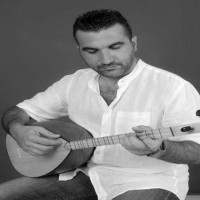
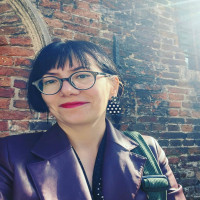

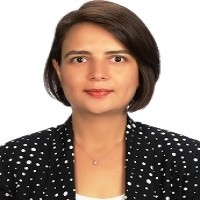
Assoc. Prof. Dr. Ayşe TOMAT YILMAZ was born in 1988 in Aydın, Turkey. She completed her primary and secondary education in this city. In 2010, she graduated second in her class from the Department of French Language and Literature at Istanbul University, Faculty of Letters. In the same year, she began working as a Research Assistant in the Department of French Language and Literature at Çankırı Karatekin University, Faculty of Letters. Between 2011 and 2012, she worked as a Research Assistant in the Department of French Language and Literature at Atatürk University, Faculty of Letters, where she also completed her master’s degree. From 2012 to 2017, she served as a Research Assistant in the Department of French Language and Literature at Ankara University, Faculty of Languages, History and Geography, where she obtained her PhD.
Between 2019 and 2021, she taught undergraduate and graduate courses as a Lecturer (Doctor) at École Normale Supérieure, Lyon 2 University, and Jean Monnet University under the Turkish Republic Lyon Educational Attaché Office. From 2020 to 2023, she served as the Education Attaché at the Consulate General of the Republic of Türkiye in Lyon. Since 2024, she has been continuing her academic career as a faculty member in the Department of French Language and Literature, Division of Western Languages and Literatures at Ankara Hacı Bayram Veli University.
During her undergraduate studies, she attended Paris Descartes University through the Erasmus Program, and during her doctoral studies, she conducted research on her dissertation at Paris X Nanterre University through the Erasmus Internship Mobility program. Between 2019 and 2021, she completed her postdoctoral research at École Normale Supérieure.
Her academic interests and research areas include French literature, North Africa, imagology, the image of the Turk, migration and migration sociology, colonialism, women’s issues, and Turkish language education in France.
Fluent in French and English, Tomat Yılmaz is married.
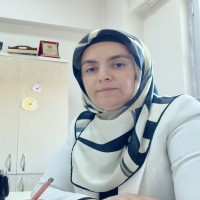


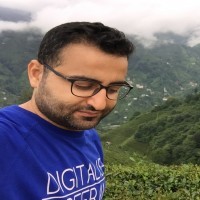
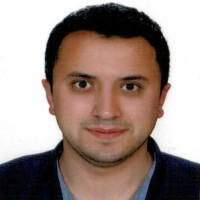
Lisans, yüksek lisans ve doktora eğitimini Çeviribilim alanında tamamlayan Caner Çetiner Doçent olarak Bandırma Onyedi Eylül Üniversitesi Mütercim ve Tercümanlık Bölümünde çalışmaktadır. Çevirmenler için bilgi teknolojileri, çeviri teknolojileri, yerelleştirme ve teknik çeviri ve hukuk çevirisi gibi dersler vermiştir. Çalışma alanları arasında çeviri eğitimi, çeviri teknolojileri, çeviride kalite değerlendirmesi ve post-editing vardır.
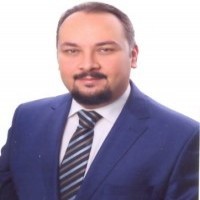
Cenk Tan received his BA in American Culture and Literature from Hacettepe University (Ankara, Turkey) in 2002. He earned his PhD from the department of English language and literature. Cenk is a trillingual speaker of English, French, and Dutch and specializes on topics such as science fiction, ecocriticism, cinema/film criticism and continental philosophy. He works as an Associate Professor at Pamukkale University (Denizli, Turkey) and is the author of various scholarly articles. He is also the editor of many published and upcoming books. His latest books include, Science Fantasy: Critical Explorations in Fiction and Film and Eco-Concepts: Critical Reflections in Emerging Ecocritical Theory and Ecological Thought published by Lexington Books in 2024 (Bloomsbury). Cenk is currently co-editing the upcoming edited volume entitled, Class Conflict in 21st Century Science Fiction Film to be published by McFarland Books in 2026.

Prof. Dr. Erdoğan Boz,
1962 Eskişehir doğumlu. Evli olup üç çocuk babasıdır.
İlk, orta ve lise tahsillerini Eskişehir’de yapmıştır.
Lisans (1985); Selçuk Üniversitesi Eğitim Fakültesi Türk Dili ve Edebiyatı Eğitimi
Yüksek Lisans (1993); Dicle Üniversitesi Sosyal Bilimleri Enstitüsü
(tez adı) ÇÜNGÜŞ VE ÇERMİK YÖRESİ AĞZI
Doktora (1996); İnönü Üniversitesi Sosyal Bilimleri Enstitüsü
(tez adı) HAKİKİ DİVANI (Metin, İnceleme, Dizin)
Prof. Dr. Erdoğan Boz’un
İkinci lisansı (2020) Anadolu Üniversitesi AÖF Felsefe Bölümü
İkinci Doktorası (devam ediyor) Eskişehir Osmangazi Üniversitesi Sosyal Bilimler Enstitüsü, “Hilary Putnam’ın Dil Felsefesi Üzerine Bir Değerlendirme” konulu tezi devam ediyor.
Erdoğan BOZ’un akademik unvanları; 1997’de Yardımcı Doçent, 2003’te Doçent, 2008’de Profesör olmuştur.
Prof. Dr. Erdoğan BOZ’un başlıca çalışma alanları şunlardır;
• Eski Anadolu Türkçesi
• Anadolu ve Rumeli Ağızları
• Türkiye Türkçesi
• Dilbilimi
• Sözlükbilimi
• Terimbilimi
• Dil Felsefesi
Erdoğan BOZ’un tek ve çok yazarlı olmak 15’in üzerinde kitabı bulunmaktadır. Bunun dışında çalışma alanlarında yayımlamış olduğu birçok bildiri ve makalesi vardır.
Prof. Dr. Erdoğan Boz, 2023 yılı itibariyle 49 yüksek lisans tezi yaptırmış ve 17 doktora öğrencisi yetiştirmiştir.
TÜBİTAK, TDK ve BAP projelerinde yürütücü/araştırıcı olarak görev almıştır.
Halen Eskişehir Osmangazi Üniversitesi İnsan ve Toplum Bilimleri Fakültesi Türk Dili ve Edebiyatı Bölümü öğretim üyesi olan Prof. Dr. Erdoğan Boz, 2009-2014 yılları arasında Yunus Emre Uygulama ve Araştırma Merkezi Müdürlüğü görevinde bulunmuşlardır. Kendileri, halen Eskişehir Osmangazi Üniversitesi Sözlükbilimi Uygulama ve Araştırma Merkezi Müdürü olarak görev yapmaktadır.

2012 yılında Selçuk Üniversitesi Türk Dili ve Edebiyatı Bölümü’nden mezun oldu. Aynı yıl Gazi Üniversitesi Sosyal Bilimler Enstitüsü Türk Halk Bilimi Anabilim Dalı yüksek lisans programında eğitim görmeye başladı ve bu programdan 2015 yılında mezun oldu. Yine aynı yıl Gazi Üniversitesi Sosyal Bilimler Enstitüsü Türk Halk Bilimi Anabilim Dalı doktora programında eğitim görmeye başladı ve 2019 yılında mezun oldu. 2022 yılında Kafkas Üniversitesi Fen-Edebiyat Fakültesi Türk Dili ve Edebiyatı Bölümüne Dr. Öğr. Üyesi olarak atanan Aslan, halk biliminin farklı alanları ile ilgili çalışmalarını sürdürmektedir.
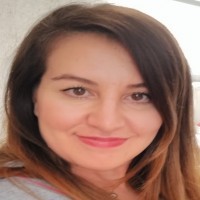

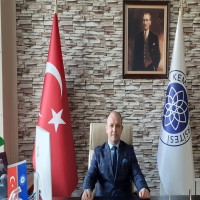
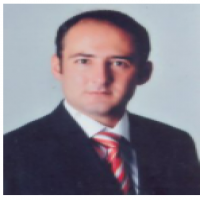
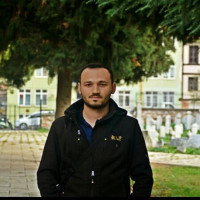
Osman Nedim Tuna'nın ilk fakülte talebelerinden. G. Gülsevin, Z. Kaymaz ve Ş. A. Bozkaplan'dan lisansüstü dersleri aldı. Türkçe ve Türk dili öğretmenliği yaptı. Resmî devlet öğretmeni olarak Özbekistan'da ilk Anadolu Lisesi'ni 1992 yılında açtı. Devlet memurluğu dışında hiçbir hususi görevde bulunmadı. Vatani vazifesini C. Alyılmazla beraber yabancı subaylara Türkçe öğretimi asteğmeni olarak yaptı. İnönü Üniversitesi Eğt. Fak. TDE Böl. Öğrtm. Araştırma Görevlisi, Dicle Üniv. Fen Ed. Fak. ÇTL Böl. Öğr. Görv. oldu. NEVÜ'de yardımcı doçent oldu. Aynı zamanda yabancı öğrencilere resmî Türkçe kursu verdi. Irak Erbil'den bir öğrenciye yüksek lisans yaptırıp master tezi hazırlattı. Düzce Üniv..'de doçent oldu. A. Buran başkanlığındaki sınav jürisinden doktora yeterliliğini başarıyla geçti. Doktora tez savunmasını Ş. H. Akalın başkanlığındaki sınav jürisinden başarıyla geçti. Özbekçe ve Kazakça üzerine tez hazırladı. Altay teorisi ile alakalı olarak makaleler yazmaktadır. Eski Uygur Türkçesi ve Anlam Bilimi üzerine kitabı vardır. 6 yüksek lisan ve 1 doktora olmak üzere 7 öğrencisinin tez savunmasını tamamlattı. 60 kadar yayımı bulunmaktadır. Hâlen Doç. Dr. olarak öğretim üyeliğini yeni Türk dili anabilim dalı başkanı olarak Düzce Üniv. Fen Ed. Fak.'nde sürdürmektedir.
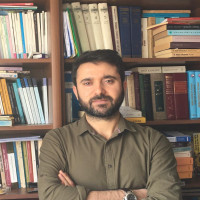
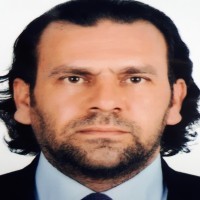
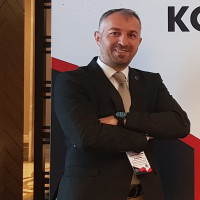

Ahıska’dan sürgün edilen bir ailenin çocuğu olarak Kazakistan’da doğdu. İlköğretim ve lise öğrenimini Kazakistan’ın Cambul şehrine bağlı Merke ilçesinde tamamladıktan sonra 1993 yılında girdiği Ege Üniversitesi Edebiyat Fakültesi Türk Dili ve Edebiyatı bölümünde 1997 yılında mezun oldu.
1999 yılında Yüksek Lisans, 2005 yılında Doktora programını tamamladı. 2000-2004 yılları arasında Edebiyat Öğretmenliği yaptı, 2004 yılında ise Bursa Uludağ Üniversitesi Eğitim Fakültesi Türkçe Öğretmenliği Bölümünde görevine devam etti. 2009 yılında Yardımcı Doçent, 2020 yılında da Doçent unvanını aldı.
Uluslararası hakemli dergilerde editörlük ve hakemlik yapan Doç. Dr. Minara Aliyeva Çınar’ın Türkoloji alanında ulusal ve uluslararası dergilerde yayınlanmış çok sayıda makalesi, uluslararası yurtiçi ve yurtdışı kongre ve bilgi şölenlerinde sunduğu pek çok bildirisi vardır.
Bireysel ve ortak yazarlı 7 kitabı ve editörlüğünü yaparak yayına hazırladığı 2 eseri bulunmaktadır.
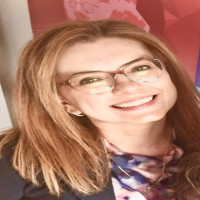
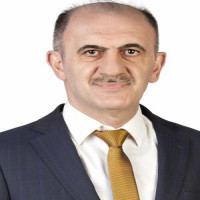

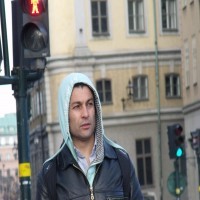
I studied archaeology at Aegean University, and my master's thesis was on the cuneiform language of Urartian. I completed PhD in the Department of Linguistics at Ankara University with a thesis on Turkish-Kurdish language contact. I took part on an EU project, Approaches to Multilingual Schools in Europe (AMuSE) led by Prof. Dr. Jochen Rehbein. I currently work at Van Yuzuncu Yil University as an associate professor and do studies on Urartian texts, endangered languages, and language contact.

1983 yılında Ankara’da doğdu. 1993 yılında H.Ü. Ankara Devlet Konservatuvarı’na girerek Doç. Ş. İzzet Nazlıaka ile viyolonsel çalışmalarına başladı.
1999 yılında Paris Ulusal Konservatuvarı profesörlerinden Philippe Müller’in Master Class’ına katıldı. Aynı yıl Anaçev’in düzenlediği Genç Viyolonselciler Yarışması’na katıldı. Ardından East Mediterranean Youth Orchestra’sının sınavını kazandı.
2000 yılında ünlü bir Rus çellist olan Marina Tarasova’nın yapmış olduğu Master Class’a katıldı.
2001 yılında Schleswig - Holstein Müzik Festivali’nin sınavına girdi. Aynı yıl Alexander Rudin’in master class’ına katıldı.
2002 yılında H.Ü. Devlet Konservatuvarı Akademik Orkestrası ile Europaischer Musik Sommer’in açılışını yaparak Berlin turnesine katıldı.
2003 yılında viyolonsel çalışmalarına Yrd. Doç. Nuray Eşen ile devam etti.
2004 yılında H.Ü. Akademik Orkestra’sına girmiştir ve bu orkestra ile yurtiçi ve yurtdışında birçok solistle konserler vermiştir.
2006 yılında viyolonsel çalışmalarını Bilkent Üniversitesi Müzik ve Sahne Sanatları Fakültesi’nde Hayrettin Hoxha ile Yüksek Lisans viyolonsel ve oda müziği çalışmalarına da Elena Gledzinova ile devam etmiştir. 2008 yılında Yüksek Lisans eğitimini başarıyla tamamlamıştır.
2009-2011 yılları arasında Ankara Üniversitesi Devlet Konservatuvarı’nda eğitmenlik yapmıştır. Aynı yıl “Klasik Keyifler” programında çellist Ruth Philips ve Ozan Tunca ile oda müziğinde Ellen Jewett ve ile çalışma fırsatı bulmuştur.
2011 yılında H.Ü.Ankara Devlet Konservatuvarı’nda Sanatta Yeterlik’e girmiştir ve burada Doç. İzzet Nazlıaka ve Prof. Doğan Cangal ile viyolonsel, Garbis Atmacayan ve Prof. Reyyan Başaran ile oda müziği ile çalışmıştır.
2016 yılında doktoradan mezun oluştur. Aynı yıl H.Ü. Ankara Devlet Konservatuvarı Orkestrası’nda kemancı olan Öğr. Gör. Seda Baykara ile keman çello düet olarak oda müziği konserleriyapmış, orkestrada solist olarak yer almıştır.
2019 yılında Ankara Müzik ve Güzel Sanatlar Üniversitesi’ne geçerek Dr. Öğretim üyesi olmuştur. Aynı yıl Trakya Üniversitesi Devlet Konservatuvarı’nda “Türk Bestecileirnin Viyolonsel Eserleri” üzerine çalıştay ve konferans vermiştir. Aynı yıl Antalya Devlet Konservatuvarı’nın dergisi olan Uluslararası Müzik Ve Sahne Sanatları Dergisi’nde “KEMAL İLERİCİ, SANAT YAŞAMI, DÖRTLÜ ARMONİ SİSTEMİ VE “EFE KAPRİSİ’NİN” MÜZİKAL AÇIDAN İNCELENMESİ” adlı makalesi yayınlanmıştır.
2020 yılında ASOS dergisinde “Fransız Viyolonsel Ekolünün Viyolonsel Tarihindeki Yeri Önemi Ve Gelişimi” Ve “İlkokul Çağındaki Çocuklarda Sahne Korkusu İle Mücadele Ve Performans Üzerindeki Etkilerinin İncelemesi” Adlı Makaleleri Ve Aynı Yıl “Necil Kazım Akses Ve Viyolonsel Eseri “İdil” Müzikal Açıdan İncelenmesi” adlı kitap bölümü yayınlanıştır. Aynı yıl "TEK MİLLET İKİ DEVLET TEK YÜREK" adlı Türkiye ve Azerbaycan ortak projesinde canlı performans gösterdi.
2021 yılında Doçent ünvanını almıştır. Aynı yıl Tolga Yüksel (klarinet) ve Aslı Ceren Kaya (piyano) ile “Trio Clapiello” olarak konserler vermiştir. Aynı yıl “J.S. BACH ÇELLO SÜİTLERİ’NİN SÜİT FORMU BAKIMINDAN İNCELENMESİ” ve “Barok Dönem” Adlı Kitap Bölümleri Yayınlanmıştır. Aynı Yıl Asos Dergisinde “Viyolonselin Batı Alanında Ve Türk Müziği’nde Ülkemize Girişi Ve Gelişim Süreci” adlı makalesi yayınlanıştır. Aynı yıl “Berlin Europa Senfoni Orkestrası” konserinde yer aldı.
2022 yılında Kültür ve Turizm Bakanlığı bünyesinde gerçekleşen Başkent Kültür Yolu Festivali’nde yer aldı. Aynı yıl Türk Fransız Kültür Derneği’nin 70. Kuruluş yılı bünyesinde gerçekleşen etkinlikte icracı olarak yer aldı. Aynı yıl “RESMİN MÜZİKLE BULUŞMASI” adlı canlı performansta Ressam Ali Herischi ile bir performans gerçekleştirdi. Aynı yıl “MÜZİK KÜLTÜRÜNE DAİR ÇEŞİTLİ GÖRÜŞLER adlı kitapta ”Xx. Yüzyılda Çelloda Vibratonun Evrimi Ve Gelişimi” Ve “Osmanlı Dönemi Ve Cumhuriyet Dönemi’nde Türkiye’deki Müzik Politikaları Ve Yetiştirilen Besteciler” adlı kitap bölümleri yayınlandı.
2023 yılı ocak ve mayıs aylarında “Trio Clapiello” ile 2 konser gerçekleştirdi. Ekim ayında Prof. Dr. Şebnem Yıldırım Orhan ‘ın kurmuş olduğu çello orkestrası ile “Cumhuriyet’in 100. Yılı” konserlerinde yer aldı. Kasım ayında Almanya Hannover ‘de Hakan AYSEV ve usta müzisyenlerden oluşan bir oda müziği konseri gerçekleştirdi.
2024 yılında Türkiye’de yurtdışından ve yurtiçinden 16 akademisyen ve 80’e yakın öğrencinin yer aldığı ilk “Uluslararası Viyolonsel Günleri” ‘nin genel sanat yönetmenliğini yaptı. Aynı yıl Temmuz ayında “Luıgı Boccherini, Viyolonsel Eserleri, Viyolonsel Repertuvarına Ve Tekniğine Getirdiği Yenilikler” adlı ve Kasım ayında “Viyolonselde Pus Parmağının Ortaya Çıkışı, İşlevi Ve Kullanımı” adlı makaleleri yayınlandı.
Doç. PINAR TURAN
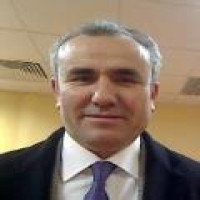
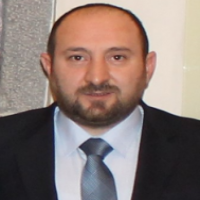
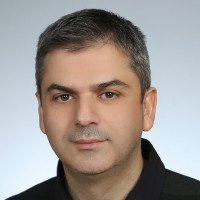
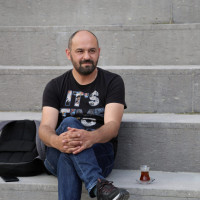

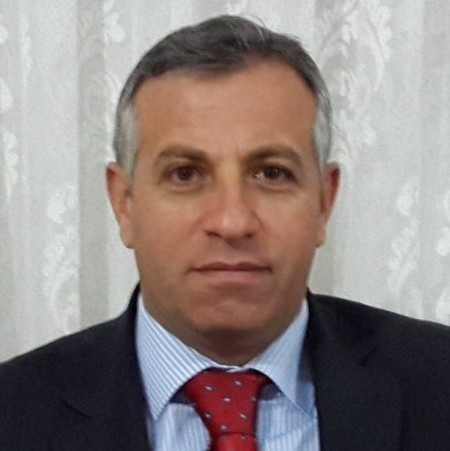


 Web
Web
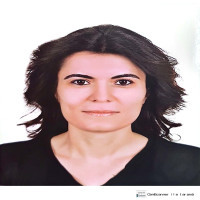
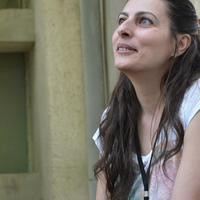



 Web
Web
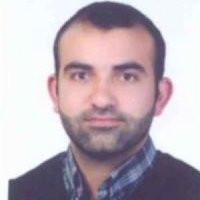
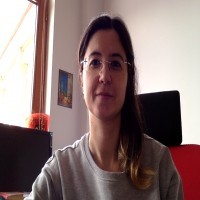
Aim & Scope
International Journal of Language, Literature and Culture Researches (UDEKAD-e-ISSN 2667-4262) publishes in these fields: general linguistics, including all languages, literatures, cultures of that language; the socio-cultural structure of societies in general; such as sociology-language, literature and culture; philosophy-language, literature and culture; history-language, literature and culture. It is an international peer-reviewed journal published in order to handle original articles, articles translations, book reviews and critiques of a wide range of topics. Our journal is published four times a year in March, June, September and December. If necessary, the special number (s) are also published.
UDEKAD includes original or compilation articles in Turkish, English and Russian languages. The journal publishes scientific translations and promotions of books as well as articles.
The scientific and legal responsibility of the articles published in UDEKAD belong to the authors.
UDEKAD is an academic, international and double blinded peer-reviewed journal publishes four times a year including Spring (March), Summer (June), Autumn (September) and Winter (December).
Unlike other social science journals, the scope of the International Journal of Language, Literature and Culture Researches (UDEKAD), is different from other social sciences journals; it also has a strong relationship with other fields of social sciences such as History, Geography, Anthropology, Law, Sociology, Philosophy, etc.In these areas, research articles, reviews, article translations, book promotion and criticism; language, literature or cultural context.
Articles submitted in accordance with UDEKAD publication rules should be submitted with iThenticate program before the publication. Similarity rate should not exceed 20%.
Author Guidelines
You can browse our Author Guide for the principles and rules of our journal.
Ethical Principles and Publication Policy
International Journal of Language, Literature and Cultural Research (UDEKAD) adheres to national and international standards in research and publication ethics. It complies with the Press Law, the Law on Intellectual and Artistic Works, and the Regulation on Scientific Research and Publication Ethics in Higher Education Institutions. It has also committed to upholding the highest standards of publication ethics and pays regard to Principles of Transparency and Best Practice in Scholarly Publishing published by the Committee on Publication Ethics (COPE), the Directory of Open Access Journals (DOAJ), the Open Access Scholarly Publishers Association (OASPA), and the World Association of Medical Editors (WAME).
International Journal of Language, Literature and Cultural Research (UDEKAD) is the journal of all languages, literatures, and cultures belonging to that language, including general linguistics; also the socio-cultural structure of societies in general; sociology-language, literature, culture relationship; relationship between philosophy and language, literature and culture; It is an international peer-reviewed journal published with the aim of dealing with a wide range of original articles, article translations, book promotions and criticisms, such as the relationship between history and language, literature and culture, with a scientific approach. In this direction, UDEKAD aims to bring research to an international level and to bring new perspectives and approaches to research.
The publication processes implemented at UDEKAD form the basis for the development and distribution of information in an impartial and respectful manner. The processes implemented in this direction directly reflect on the quality of the work of the authors and the institutions that support the authors. Peer-reviewed studies are studies that embody and support the scientific method. UDEKAD has a strict publishing approach against plagiarism and predatory journal publishing. Therefore, authors who want to submit their works to the journal must have a quality that will contribute to academic fields, be original and research-based, comply with the publication rules, and have the Ithenticate similarity report comply with the criteria of our journal (not to exceed 20% similarity rate), and the work must not have been published or sent for publication elsewhere. At the same time, authors are expected to pay attention to the level of contribution of the authors to the research in studies with more than one author, to declare that they have read and accept the publishing and writing principles of the journal, and to take into account the Scientific Research and Publication Ethics Directive specified by the Council of Higher Education. As of the date of announcement (16.03.2024), our journal will not include studies produced from symposium and congress proceedings and studies produced from master's theses.
On the other hand, UDEKAD attaches importance to the fact that referees, who are one of the most important stakeholders of the academic publication process, act with the awareness that they are the most fundamental determinants of the academic quality of the studies during the evaluation phase of the studies to be published and act in accordance with their responsibility to increase academic quality. For this purpose, UDEKAD ensures that the studies to be evaluated are forwarded to referees suitable for their fields of expertise and academic experience; It gives priority to referees to pay attention only to the accuracy of the content of the articles and their compliance with academic criteria, their reports to be objective and measured, and their evaluations to be completed within the given time.
The editor, assistant editors and other responsible persons of the journal are asked to accept and pre-evaluate studies that will contribute to the fields addressed by the journal in order to ensure that the academic publication process is carried out in a healthy manner; They are expected to reject works that do not meet the specified criteria. In addition, it is the primary responsibility of those involved in the journal to maintain mutual confidentiality between researchers and referees, to make efforts to prevent possible plagiarism in studies, and to prioritize academic and ethical principles in all processes of the journal.
Price Policy
The International Journal of Language, Literature and Culture Researches (UDEKAD) does not receive any help or support from any institution or organization. Our journal; uses paid services for digital publishing, graphic design and promotion to international indexes. For this reason, as of January 2022, UDEKAD AKADEMİ Publishing requests a fee (100 USD) from the authors during the evaluation of their articles. The fee is requested regardless of the acceptance or rejection of the article. The fees paid by the authors whose applications are rejected by the referees will not be refunded.
Evaluation and Referee Fee Policy of the International Journal of Language, Literature and Culture Researches (UDEKAD):
After the article is sent to the journal, the application files and plagiarism report of the relevant article are examined by the journal editor and the Editorial Board, and its suitability for evaluation in the journal is checked. Manuscripts that do not pass this process are returned to the author with their justifications. After the evaluation, the authors of the studies deemed suitable for the publication principles of our journal are informed about the process. The authors, who are informed about the process, are requested to deposit the process operating fee to the account of UDEKAD ACADEMY Publishing. The evaluation process of the articles for which the required fee is not paid is not started and the article is returned. After the article owners' feedback on the subject, the study is taken into pre-evaluation. At this stage, the manuscript is evaluated formally by the editorial unit; Corrections are requested for the articles that do not comply with the publishing principles and spelling rules. The referee evaluation process is started for the works that are transferred to the editor after the correction requests are fulfilled. Manuscripts that are deemed appropriate to be sent to the referee are first sent to two referees by applying the double-blind refereeing policy. If one of the referee's reports is positive and the other negative, the opinion of the third referee is requested. The refere fee is evaluated as follows: Each referee is paid 10 USD, including VAT. Referee fee does not mean that the article will be published, but that it will be reviewed by experts in the field. Even if the referee rejects the article after making an objective evaluation, the referee fee is paid.
Considering the layout expenses at the publishing stage for the articles deemed suitable for publication by the referee reports and the decision of the editorial board, and the expenses incurred together with the service received for the promotion of the article to the indexes and indexes after publication, it is seen that our journal does not seek profit.
Our journal does not, under any circumstances, request or accept money from authors with a commitment to publish.
The address "udekadjournal@gmail.com" is used for sending receipts or fee information. (Evaluation of book review articles will be done free of charge)
Indexes
Citation Indexes
Other Indexes
Journal Boards
Editor in Chief
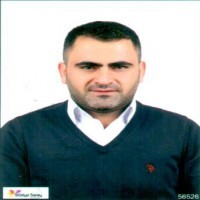
Editors/Fields Editors

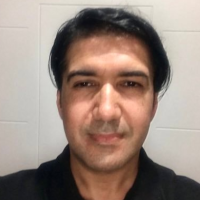
Editorial Board
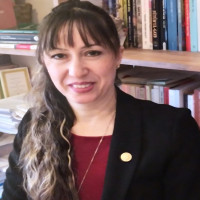
İstanbul doğumlu olan Funda Kızıler, ilk, orta ve lise öğrenimlerini İstanbul’da tamamladı. Atatürk Üniversitesi Alman Dili ve Edebiyatı Bölümü’ndeki lisans öğrenimini 1996’da bölüm birincisi olarak bitiren Kızıler, 1997 yılında aynı üniversitede Araştırma Gör. olarak çalışmaya başladı. “Hermann Hesse’nin Boncuk Oyunu Adlı Yapıtında Ütopik Us Dünyası” (1998) başlıklı çalışmasıyla yüksek lisans, “Patrick Süskind’in Parfüm Adlı Romanında Modernist ve Postmodernist Açılımlar” (2003) başlıklı çalışmasıyla doktora öğrenimini tamamladı. Sakarya Üniversitesi Alman Dili ve Edebiyatı Bölümü’nde Profesör Dr. olarak görev yapmaktadır.
A graduate of the University of Warsaw with a PhD in the humanities. A lecturer in Russian at the Centre for Foreign Language Teaching at the University of Warsaw. An experienced teacher and certified examiner at all levels of language education. Co-author of the Russian language textbooks Prosto klass and #русский язык. She has gained her experience teaching in Warsaw language schools, delivering corporate language training, and working with individual students. Passionate about teaching and lifelong learning.
Erzincan’da doğdum. İlk, orta, lise öğrenimini Erzincan’da yaptı. Hacettepe Üniversitesi Fransız Dili ve Edebiyatı Bölümü’nde lisansını tamamladıktan sonra Milli Eğitim Bakanlığı’na bağlı çeşitli orta öğretim kurumlarında altı yıl süreyle Fransızca ve Türkçe öğretmenliği yaptım Cumhuriyet Üniversitesi Fransız Dili ve Edebiyatı Bölümü’nde öğretim görevlisi olarak çalışırken, yüksek lisansını Hacettepe Üniversitesi Sosyal Bilimler Enstitüsü Fransız Dili ve Edebiyatı Anabilim Dalı’nda “La Mystique dans Les Fleurs du Mal” başlıklı tez çalışması ile tamamladım. Yine Hacettepe Üniversitesi Sosyal Bilimler Enstitüsü Fransız Dili ve Edebiyatı Anabilim Dalı’nda “La Quête de Soi dans les Oeuvres Romanesques de Jean-Marie Gustave Le Clézio” başlıklı çalışması ile doktor unvanı aldım ve ardından Cumhuriyet Üniversitesi Fransız Dili ve Edebiyatı Bölümü’ne Yrd. Doç. Dr. Unvanı ile öğretim üyesi olarak atandım. 2012 yılında Pamukkale Üniversitesi Fransız Dili ve Edebiyatı Bölümü’ne geçiş yaptım. Halen aynı üniversitede Doçent unvanı ile öğretim üyesi olarak çalışmayı sürdürmekteyim. Çeşitli bilimsel dergilerde 18.yüzyıl, 19. Yüzyıl ve Çağdaş Fransız Edebiyatı, simgeci Fransız Şiiri, sürrealist şiir ve özellikle Baudelaire şiiri hakkında yayımlanmış makalelerim ve kitap bölümlerim bulunmaktadır. Bunun yanında çeşitli e-dergilerde yazı, şiir ve çevirilerim yayınlanmıştır. Çalıştığım kurumda profesörlük için şartları yerine getirmiş bulunmaktayım ve bu unvan için kadro beklemekteyim.

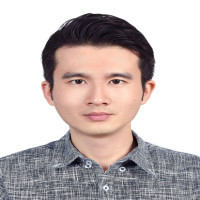

F.Gül Koçsoy graduated from the Department of English Language and Literature at Ataturk University in Erzurum. She completed her MA on Katherine Anne Porter’s short fiction and her Doctorate on Willa Cather’s novels. After her graduation from the university, she worked as an English teacher for four years in Erzurum and as an instructor at Karadeniz Technical University in Trabzon for eight years. Currently, she works as an Associate Prof. Dr. at Firat University in Elazig, Turkey. Her research interests are American culture and literature. He teaches American literature. In recent years, she has taught academic writing, translation and textual analysis.

Language Editors
Graphic Design Manager
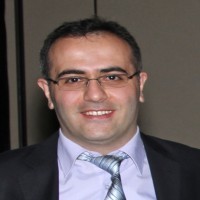
International Advisory Board
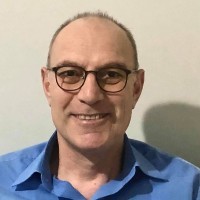
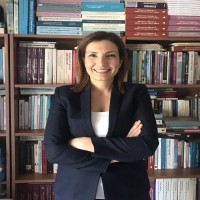
https://avesis.ankara.edu.tr/ydbozkus





* It is important for our reviewers to enter their fields of expertise in detail in terms of assigning reviewers in the process.






















